- Why GoGather
- Our Services
- All Event Solutions
- Conferences
- Corporate Meetings
- Franchise Events
- Sales Kickoffs & National Sales Meetings
- Employee Incentive Trips
- Channel Partner Incentives
- Success Stories
- Preferred Properties
- Buying Guide
- Pricing Guide


What is Incentive Travel? (With 4 Examples + Top Locations)
More and more companies are considering incentive travel for their internal teams to reward employees and even external partners to incentivize sales.
But what is incentive travel? What are some examples of incentive trips? And is an incentive travel program right for your team?
This article breaks down everything you need to know.
What is incentive travel?
Let's start with incentive travel meaning: Incentive travel is the use of an all-expenses-paid trip to reward and motivate employees or channel partners for achieving specific business goals. Incentive trips can be given to individuals to use independently or designed as a group travel experience.
Incentive travel group trips can include a range of activities, from luxury cruises and beach vacations to adventure travel and cultural tours.
Most companies use incentive programs to create a memorable and unique experience that inspires participants to work harder and feel more connected to their company and colleagues. By offering these programs, businesses can boost employee morale, retention, and productivity, while also increasing loyalty and sales.
Incentive travel trips typically include a luxury hotel or resort, exciting itineraries, white-glove service, and networking opportunities that reward and connect top performers.

Who is incentive travel best for?
Incentive travel is best for companies looking to motivate, reward, and inspire employees or partners. It's typically considered a "VIP access" event.
It’s especially effective for businesses that are focused on boosting sales team engagement, improving retention rates, reducing employee turnover and burnout, and increasing productivity. Sales incentives are great ways to encourage your teams to hit their sales targets as well.
These types of attendees are typically given a qualification period to hit their target number and then selected for the trip based on their performance.
Incentive travel programs are also great for companies looking to create a stronger sense of community and teamwork within their organization.
Corporate incentive travel programs don’t just have to be for big businesses with a ton of money. With the right budget, incentive programs can be a perfect opportunity to connect your teams and inspire success.
Incentive travel is also not limited to any particular industry, as any business can benefit from incentivizing its employees to achieve specific goals. Neither is it limited to a department (though most programs focus on sales teams).
Analyzing your business needs will help you decide whether group travel incentive programs are best for your company.

What are the benefits of incentive travel? Why incentive travel works.
There are several benefits to incentive travel. It’s a highly effective way to motivate and reward employees for their hard work and dedication. As companies implement travel incentive programs in their business, they begin to realize the importance of incentive travel.
For businesses that are still on the fence, here are some of the key benefits of incentive travel :
1. Increased employee motivation and engagement
Incentive travel provides employees with a tangible goal to work toward and the promise of a reward to achieve it. It also creates competition and a sense of scarcity among employees, as not everyone gets to partake. This can help increase motivation and engagement levels, leading to improved performance and productivity, including hitting a specific sales target or quota.
2. Improved retention rates
Employees who feel valued and appreciated are more likely to stay with their company. Incentive travel programs are an especially effective way to show that appreciation, which can in turn help improve retention rates.
3. Enhanced team building and communication
Incentive travel trips often involved team-building activities that can help improve communication and collaboration among employees. They also offer a more relaxed environment in which to connect, as well as an opportunity to connect with executive leaders. All of these combine to form a better sense of community, which can help with business performance.
4. Increase company culture and brand reputation
Offering incentive travel programs can help create a positive company culture. This can make the company more attractive to potential employees, customers and partners, leading to increased success and growth.
5. Increased customer loyalty and sales
Incentive travel programs can also be used to reward channel partners or customers, which can help improve loyalty and drive sales.
Overall, there are many benefits to incentive travel trips. They offer a unique opportunity to inspire, engage and motivate attendees, and can be more effective than cash rewards or other gifts. Compare the incentive travel to cash rewards in our latest article.

What are some disadvantages of incentive travel?
Although incentive travel can be incredibly effective for some teams, there are also a few disadvantages to consider.
Incentive travel can be expensive to plan and execute, requiring substantial financial resources. Companies need to allocate budgets for travel expenses, accommodation, meals, activities, and other related costs. This expenditure can strain the company's finances, particularly for smaller businesses or during periods of economic uncertainty.
2. Perceived inequity among employees
Offering incentive travel may create a sense of inequality among employees. Those who don't qualify for the incentive or are unable to attend due to personal circumstances may feel demotivated or undervalued.
3. Distraction from work
Planning and participating in incentive travel programs can temporarily divert employees' attention away from their regular work responsibilities. While the intention is to reward and motivate employees, excessive focus on the trip itself can lead to decreased productivity and potentially impact overall business operations. Companies should carefully balance the benefits of incentive travel against the potential disruption it may cause.
Overall, we've seen the benefits of incentive travel majorly outweigh the drawbacks, but it's important to evaluate the program for your own business.

Examples of Incentive Travel Programs
Here are some ideas for your next trip:
Luxury beach vacations
A trip to a luxurious beach resort in a place like Cabo, Mexico, or Bali can be a great incentive option. This type of incentive travel program offers the chance to relax, enjoy the sun, and participate in activities like snorkeling, sailing, paddle boarding, and beach games.
Adventure travel
For more adventurous teams, an incentive travel program that includes activities like hiking, rock climbing, or white-water rafting can be a great motivator. This type of program offers unique and memorable experiences to build teamwork.
Cultural tours
A cultural tour can be a unique opportunity for teams to immerse themselves in a local culture they may not otherwise be able to. This type of program might include visits to historical sites, museums and local markets, as well as opportunities to sample local cuisine.
Wellness retreats
A wellness retreat can be a great way to help employees relax and reset, both physically and mentally. This type of program would include activities like yoga, meditation, spa treatments and healthy eating workshops.
These are just a couple of examples of the many types of incentive programs available. We encourage you to think beyond the typical go-to destinations to find an incentive program structure that works best for your team.
For more ideas, check out our top incentive travel trends for 2024.

What are the best locations for incentive programs?
The best location for your incentive travel program depends on your team, the structure of your event, and your budget. We recommend starting with those three pillars and selecting several options to compare before you select a destination.
These programs can happen in any location, whether domestic or exotic locations.
With that said, here are some of our favorite incentive travel destinations from recent years:
Perfect for adventurous souls, Costa Rica offers several activities like zip-lining, hiking and water sports. The country also has a strong focus on sustainability and eco-tourism, making it a great destination for companies with a green focus.
Hawaii offers a multitude of options for those looking to relax, explore, or a little of both. Activities like surfing, hiking, and snorkeling are popular, as well as cultural experiences like hula dancing and lei making. Those looking to unwind also have the option of simply relaxing on the beach.
Tuscany, Italy
Tuscany offers stunning landscapes, historic architecture, and world-renowned cuisine. Activities like wine tasting, cooking classes, and visits to historic sites are popular.
Northern California
Northern California offers a multitude of resorts catering to those looking to escape for wellness retreats. With great weather year-round, this is a great option for companies looking to stay closer to home while still offering an escape.
With its mix of Mediterranean culture, pristine water, and gorgeous landscapes, Mallorca offers groups an amazing escape just off the coast of Spain. As one of our top-performing locations, Mallorca always offers that "wow" factor.
Not sure where to start when looking for the right destination for your team? Check out our guide to selecting the best destination for your incentive trip.

How is an incentive program typically structured?
To create an effective incentive trip program, organizations should start by defining clear goals and objectives. This involves determining the behaviors or outcomes they want to incentivize and the desired results they hope to achieve.
Next, consider factors such as timing, eligibility criteria, and performance metrics. Some companies choose to select the top percent of employees to include in their trip, some select specific departments, and others choose to bring their whole company. Whatever the selection criteria, make sure it's clearly defined and communicated to everyone involved, so they can understand how they can become a part of the group selected to go.
From there, your company can structure your incentive program by selecting destinations and activities that align with your goals, interests, and budget. Decide whether it should be a group trip or an individual reward trip.

Example Incentive Trip Agenda
According to the Incentive Research Foundation, 3 - 5 day trips are ideal for incentive trips. This agenda is created around that recommendation and designed in a group travel format.
As you build your agenda, consider what mix of leisure and business activities you want, or how much free time to provide guests. Develop activities related to group interests instead of just what's available. And considering leveraging local knowledge to find cultural activities throughout.
- Arrivals at destination, hotel check-in and welcome reception
- Group dinner
- Morning casual activities, such as yoga, spa, pool, or other
- Afternoon small groups activities on site, such as sailing, golf, kayaking, or horseback riding
- Evening cocktail reception and dinner
- Full-day excursion or private tour to nearby cultural or natural attraction (e.g. city tour, national park)
- Group lunch at local restaurant
- Evening time to explore destination or attend optional activity (e.g. cooking class, wine tasting)
- Morning volunteer event, such as school supply drive, beach cleanup, etc.
- Afternoon time to explore destination or participate in optional activity (e.g. spa day, painting class, team-building exercises)
- Evening awards dinner and celebration
This itinerary is just an example and can be customized to fit the specific goals and preferences of the group. The key to a successful trip agenda is to provide a balance of team-building activities, cultural experiences, free time for exploration, and leisure activities for relaxation. Learn how to make your sales incentive trip a success here.

Is incentive travel right for my company?
Incentive travel may or may not be right for your company. There are several areas to consider as you decide if you should plan an incentive program.
Consider whether your team would benefit from a luxury trip with some rest and relaxation. Are your teams feeling burnt out or overwhelmed? This may be a good opportunity to reset.
Are your teams not hitting their sales targets? An incentive program might be the nudge they need to perform better -- beyond just getting a cash bonus.
Or, on the flip side, are your teams hitting certain achievements beyond expectations? Maybe it's time to reward those top performers with a little incentive travel trip.
Whatever your team looks like, it's important to understand if your budget and the outcomes are right for your company. Dive further into how to plan a successful incentive trip here.
Can I get help planning my incentive trip?
Yes, absolutely. Destination management companies and event planning companies are your ideal partners to help plan your event.
GoGather is your go-to event planner for your next incentive program. We have developed and planned travel incentives across the world, from Bali to Mexico to Mallorca. We help you design VIP trips to reward your top achievers and inspire success. Let's review your company goals and develop an amazing incentive trip specifically designed for your company. Start planning with us now.

Katie Moser
Related articles.
Incentive Travel
What is incentive travel? How are incentive programs, trips, and events different from conference and meeting planning? In this section we'll look at the definition of incentive travel, including: examples of incentive travel programs, how to become an incentive travel planner, an incentive travel planner job description, career advice, employment information, and the pros and cons of being an incentive travel planner in this sector of the events industry.
A guide to incentive travel programs; definitions, descriptions, and examples.
Careers in Incentive Travel / Destination Management
Why become an incentive travel planner or destination manager? Career advice and employment information.
Being an Incentive Travel Planner
What does an incentive travel planner do? Read a real incentive travel planner job description by Martin Turner, former Director of Travel, International Travel Group, and former Global Head of Events, Credit Suisse .
Pros and Cons of Incentive Travel
Pros and cons of incentive travel by Martin Turner, former Director of Travel, International Travel Group, and former Global Head of Events, Credit Suisse .
Being a Destination Manager
What does a destination manager do? Read a real destination manager job description by Jennifer Miller, Partner and President, ACCESS Destination Services .
Pros and Cons of Destination Management Careers
Pros and cons of destination management careers by Jennifer Miller, Partner and President, ACCESS Destination Services .
MICE: Meetings, Incentives, Conferences, Exhibitions
Although the content of an incentive travel program is very different to other types of meetings—in that the emphasis is on entertainment, activities, and socializing—the event planning process is very similar. Meetings and incentive programs both involve location planning, destination management, co-ordinating travel and accommodation, and creating a program of supporting events.
Meeting planners often find themselves working on a mix of meetings, conferences, and incentive travel programs, and in doing so will often call upon the services of a destination manager at a DMC (Destination Management Company). Destination managers are a type of event planner who offers local knowledge and resources to meeting planners in order to help deliver events in a particular region
What Is Incentive Travel?
Incentive travel is the reward element of an incentive, recognition, or loyalty program, which takes the form of an all-expenses paid trip with a program of scheduled events and activities.
Incentive Programs
Incentive, recognition, and loyalty programs (from here on referred to as just ‘incentive programs’) are used by companies as a motivational tool to achieve certain business objectives, for example to increase sales.
Participants—which might be the company’s employees, distributors / re-sellers, or customers—usually have to qualify by achieving a certain level of performance, pre-defined by the terms of the incentive program, e.g. achieving pre-set sales targets.
Those that meet the relevant criteria are then rewarded by taking part in the incentive travel trip (sometimes referred to as the ‘award’). These are usually group trips with a set itinerary where all those qualifying take part in the same program of events and activities, however individual incentive trips are also used by some companies.
Incentive Trips/Awards
To fulfill the award, the company will use some form of event / meeting planner to co-ordinate the trip and design the itinerary, including all travel arrangements, accommodation, receptions, dinners, activities, excursions, entertainment, and special events.
Often, this will involve the meeting planner hiring a Destination Management Company (DMC), located in the city where the event is being held, to assist them in booking and managing local elements, such as restaurants, venues, transport, staffing, production, décor, entertainment, activities, and excursions.
Incentives are a very effective way to drive sales. An incentive program might be aimed at a company’s employees i.e. the sales team, or its distributors / re-sellers.
For example, a car manufacturer might create an incentive program for its dealers, whereby they have to meet a certain sales target each month. At the end of the term of the program, a year perhaps, those that made the required amount of sales will be rewarded by coming together with management executives, and the other qualifying dealers, to attend the award trip.
This might consist of a three-day trip to Monte Carlo during the Monaco Grand Prix with a cocktail reception on a yacht, a private dinner at the world famous casino, followed by leisure activities and excursions such as sailing, wine tastings, golf, or a private tour of The Prince’s Palace.
Rewards and Recognition
Group travel can also be used as part of an employee reward and recognition program. Whereas incentive programs aim to inspire or influence someone’s efforts, the purpose of rewards and recognition programs are to reinforce certain behaviors.
A qualifying employee may be deemed to be improving customer service, living the corporate values, or meeting productivity goals. A company might create a group travel program ‘award’ as a way to engage with their employees, recognize performance, and reward top achievers.
The format is similar to those held for sales incentives in that, as a reward, the emphasis is on leisure activities, excursions, group dinners, and receptions. It might be a trip to Sir Richard Branson’s private game resort, Ulusaba Lodge in South Africa, with a program that includes safaris, hot air balloon rides, helicopter tours over canyons, and outdoor dinners and receptions with the finest African cuisine.
Employee Motivation
For example, in addition to various dinners and leisure activities, one company’s program included a team building session called ‘Helping Hands’ where employees were given a box of parts and an instruction booklet. Working as a team they had to assemble an object, which later transpired to be a prosthetic hand, which was then given to a land mine victim who had lost their hand.
Customer Loyalty
Another variation of an incentive program is when group travel is used to reward customer loyalty and repeat business. I have actually been on the receiving end on an incentive program organized by the parent company of a group of event industry suppliers.
The parent company owns a caterer, a venue finding company, a staffing agency, and a technical production company—amongst others. They have an incentive program whereby their customers, event companies such as my own, Left Field Productions , have their annual spend with any of the parent company’s businesses converted into points. Once a certain amount of points is accrued, my company qualifies for between one and three places on a group travel ‘award’.
One year this included a three-day trip to Portofino, Italy, where we stayed in the luxurious Hotel Splendido, which sits on a hillside overlooking the Mediterranean and is frequented by celebrities such as Madonna, George Clooney, and Elizabeth Taylor.
The ‘incentive travel program’ is what, up until now, we have been referring to as the ‘award’; it’s the reward element of the entire ‘incentive program’. Among event planners however, the ‘award’ is generally referred to as the ‘incentive travel program’ or just the ‘travel program’. It’s not really regarded as an event, because it’s usually a lot more than that; it’s a program of events and activities over several days or even a week.
Incentive Program
The ‘incentive program’ is the entire scheme that leads up to and includes the ‘award’. The ‘incentive program’ might start up to a year in advance, often it’s unveiled at the end of the current program—perhaps at an awards dinner on the final evening—in order to build excitement.
The incentive program is often unveiled on the final night of the previous year’s incentive travel program.
Teaser Campaign
‘Teasers’ are sent out to participants to build anticipation of the official launch. For example, if the destination is going to be a beach resort, then a flip-flop might be sent to each participant with a cryptic clue attached. Promoting an incentive is all about building excitement, so often the way it is communicated needs to be creating and engaging.
Official Announcement
Official announcement, information packs, and enrolment kits are sent out for participants to ‘sign up’ to the incentive program. These packs will outline the terms and conditions of the program, with information on what is required to qualify, for example defining sales targets.
Qualification period
During this period, which could last up to a year, participants are required to meet the pre-defined criteria that would enable them to qualify for the award, for example hitting sales targets.
Mid-Program Motivation
More teasers and reminders will usually be sent out over the course of the qualifying period to encourage the participants to meet the necessary criteria.
Qualifiers Announced
Qualifiers or ‘winners’ announced. In some cases, physical trophies or other gifts are handed out at this stage, in advance of the actual ‘award’ trip. Shortly after, travel arrangements will be communicated to the qualifiers.
Guests might travel separately from different locations or, alternatively, group travel arrangements will be made where everybody takes the same flight together.
Upon arrival in the destination city, participants might be greeted at the airport by local representatives, before transferring to their hotels. Often the creative elements of the program start here.
For example, when I attended an incentive program in Monaco, we were flown from London to Nice, South of France, and had expected to be driven on to our hotel in Monte Carlo. However, on arrival in Nice, we discovered a series of helicopters had been laid on to transfer us the rest of the way.
Hotel Check-In
Participants are then greeted at the hotel, checked in, and have some time to settle in before the evening’s welcome dinner. Typically a welcome pack and gift is often left in room.
Welcome cocktail reception. An opportunity for everyone to meet and network, perhaps on a private terrace at the hotel, possibly with live entertainment from musicians and performers. Usually the meeting planner will add in a few extra creative touches to make the reception a little more special, such as a wine or tequila tasting.
Open-air dinner in the hotel’s private gardens overlooking the sea, possibly with after-dinner entertainment and/or some speeches from the hosts. Often the first evening’s dinner is held ‘on-site’ at the hotel as people are tired from travelling.
After-Dinner Drinks
Often, on the first night, this is just informal after-dinner drinks in the hotel bar as most people are tied from travelling. However, depending on the group, there might be cigars and cognac laid on, or a private lounge area with cocktails.
Breakfast at the hotel, perhaps followed by an informal meeting or presentation regarding upcoming activities.
Excursion to local attractions, sightseeing, and shopping. These might be cultural activities or the opportunity to take part in authentic ‘real life’ experiences typical of the location—such as exploring the Hutong area of Beijing by bicycle and having tea with locals in their homes.
Group lunch at a restaurant or special venue. Again, this is an opportunity for the meeting planner to get creative perhaps by obtaining access to a venue or location that's typically not accessible to the general public—such as lunch on a movie set or in private rooms at a royal palace.
Afternoon of leisure activities, which depending on the group, might be traditional activities, such as golf or a spa day. Alternatively, it could be more unusual activities like cage diving with sharks or bulldozer adventure playground days. Often, the meeting planner will try to obtain some sort of unique or VIP access, such as getting to kick around footballs with a professional team and star players at their local stadium.
Reception and Dinner
The second day's evening cocktail reception and dinner typically takes place ‘off-site’ at a restaurant or private venue, usually with entertainment. Again this might involve some sort of unusual venue, such as a USO themed event on a real naval base.
Nightclub / Casino
Option to continue on to a local nightclub/casino.
Breakfast at the hotel, perhaps followed by an informal meeting.
Excursion / Activities
More leisure activities, trips, or opportunity to experience local culture. Depending on the group, this could be anything from cave tours, to zero gravity flights at a NASA training facility, to private backstage tours of a Broadway show and an opportunity to meet the cast.
Group lunch at a restaurant or special venue.
Team Building
Team building / experiential activity—sometimes with a connection to the local community or a charity. This might be building a park in the desert for a children's home or the Helping Hand's activity mentioned previously where the group make prosthetic hands to be given to land mine victims who've lost their hand
Dinner/Dance/Awards
Cocktail reception, gala dinner, awards ceremony, and dancing ‘off-site’ at a private venue. Next year's destination/incentive program revealed.
Breakfast at hotel.
Check-out / transfers
Hotel check-out, transfers to airport.
Group lunch at a restaurant or special venue en route to airport
Return flight home
Obviously, this format only outlines the bare bones of a travel program. The challenge for the event planner is in making these programs as creative and engaging as possible—especially when you have to create something new and different every year.
The destination, accommodation, and activities might be amazing in their own right. For example, a three night trip to Hawaii with an itinerary that includes a sunset cocktail cruise, a private dinner on the beach, activities such as surfing, golf, waterfall hikes, hula lessons, and stargazing treks. It might also include excursions to the Diamond Head volcanic crater and Pearl Harbor, before a closing dinner and awards ceremony on the final night.
However, a good planner will make sure they include some extra special moments, private access to people and places, or exclusive experiences that the guests could not create themselves—either through lack of financial resources, local knowledge, contacts, or even imagination.
New Orleans
One leading incentive travel company created a trip to New Orleans for one of its clients, a Fortune 500 company. In addition to the usual 5 star accommodation and the finest local cuisine, the company added some extra touches to make the trip even more special. These included a private parade along Bourbon Street, followed by a dinner on the field of the Superdrome—where they were greeted by a marching band with their names circling on the ribbon board and their photos on the Jumbotron. They even had the chance to toss a few footballs around the pitch.
The following day, to connect with the local community, the group spent the afternoon planting trees and bushes at a newly rebuilt elementary school, which had been devastated by Hurricane Katrina. The playground and the landscaping that the group contributed to were the final touches to the redevelopment that had been seven years in the making.
Whether it’s providing exclusive access to something not readily available to the public, taking part in authentic ‘real life’ experiences typical of the local culture, or giving something back by connecting with the local community, those moments create memories that go far beyond being a business trip or vacation—and is what makes incentive travel work as a motivational tool.
REFERENCES 1. Anatomy of a Successful Incentive Travel Program White Paper, Melissa Van Dyke, Incentive Research Foundation
Why become an inventive travel planner or destination manager? Career advice and employment information.
- Incentive Travel
25 / 09 / 2023
What Is Incentive Travel? (Explained With 7 Examples)

In today's competitive business landscape, organizations are continually seeking innovative ways to motivate their employees and drive success. One such strategy that has gained immense popularity in recent years is incentive travel. Let’s delve into the world of incentive travel, explore what it is, how it compares to cash bonuses, its impact on employee motivation, and its significance for organizational goals. We'll also discuss the different types of incentive travel, the target audience for such programs, their frequency, and whether you should create a plan in-house or collaborate with an agency like MICEHospitality. Additionally, we'll provide you with a useful checklist for creating an effective incentive travel plan and share some inspiring examples of successful incentive travel programs.
What is Incentive Tour?
Incentive tour is a powerful motivational tool used by organizations to reward and recognize their top-performing employees. It involves offering a travel experience as a reward for achieving specific performance goals or targets. Unlike cash bonuses, which often get absorbed into routine expenses, incentive tour offers a memorable and highly motivating experience that employees can cherish for a lifetime.
The concept of incentive tour is rooted in the idea that employees who feel valued and appreciated for their contributions are more likely to be engaged, motivated, and committed to their work. It goes beyond the traditional approach of monetary compensation and taps into the fundamental human desire for experiences, adventure, and personal growth.
Incentive Tour vs. Cash Bonus
The debate between incentive tour and cash bonus is a common one in the realm of employee motivation. While both approaches have their merits, incentive tour stands out for several reasons. First and foremost, it provides a tangible and exciting reward that goes beyond monetary compensation. When employees are offered a chance to embark on an all-expenses-paid trip to a dream destination, it creates a sense of anticipation and excitement that money alone cannot match.
Moreover, incentive tour offers a unique opportunity for team building and bonding among employees. When colleagues travel together, they form stronger connections and develop a deeper sense of camaraderie, which can positively impact workplace dynamics. Cash bonuses, on the other hand, do little to foster such relationships.
In addition to the tangible rewards, incentive tour offers intangible benefits that can have a lasting impact on employees. Travel experiences often lead to personal growth, cultural enrichment, and the creation of cherished memories. These aspects contribute to an employee's overall well-being and happiness, which, in turn, can enhance their job satisfaction and performance.
When employees return from an incentive trip, they often bring back newfound energy and enthusiasm to the workplace. This boosts their morale and leads to increased productivity and a more positive work atmosphere. In contrast, cash bonuses, while appreciated, may not have the same long-term effect on employee motivation and engagement.
Why Incentive Trips Are Important: Impact on Employee Motivation and Organizational Goals
Incentive trips play a pivotal role in boosting employee motivation. They serve as concrete milestones that employees strive to achieve, knowing that their hard work will be rewarded with a remarkable travel experience. This anticipation can fuel increased productivity, engagement, and overall job satisfaction among employees.
From an organizational perspective, incentive travel aligns employee efforts with company goals. By setting specific performance targets tied to the trip, businesses can channel their workforce's energy towards achieving strategic objectives. Whether it's increasing sales, improving customer satisfaction, or enhancing productivity, incentive travel programs can be tailored to support various organizational priorities.
Types of Incentive Travel
Incentive travel programs come in various forms, each catering to different employee preferences and organizational budgets. Here are the most common types:
All-Expense-Paid Trips: These are the most extravagant incentive travel programs, covering everything from flights and accommodation to meals and activities. They offer employees a worry-free experience, allowing them to fully immerse themselves in the destination.
Just Stay Incentives: In this type of program, employees are rewarded with a complimentary stay at a luxurious resort or hotel. While it doesn't include travel expenses, it still provides a relaxing and rejuvenating experience.
Just Travel: Here, the focus is solely on the travel aspect. Employees receive travel vouchers or points that they can use to plan their dream vacations. This option offers flexibility and allows individuals to choose destinations that resonate with their interests.
Adventure-Based Incentives: For employees seeking thrill and adventure, organizations can offer incentive programs that include activities such as zip-lining, hiking, or water sports. These programs appeal to those with a sense of adventure and a love for the outdoors.
For Whom Should You Run an Incentive Travel Program
Incentive travel programs are versatile and can be tailored to suit various industries and roles. They are particularly effective for:
Sales Teams: Rewarding top-performing salespeople with incentive trips can drive revenue growth and motivate others to excel.
Customer Service Teams: Recognizing outstanding customer service representatives can improve customer satisfaction and loyalty.
Managers and Executives: Providing leadership with incentive travel opportunities can strengthen their commitment to the organization's success.
Cross-Functional Teams: Incentive travel programs can also be designed to encourage collaboration and teamwork among employees from different departments, fostering a more cohesive and innovative workplace culture.
How Often Should You Run an Incentive Travel Program
The frequency of incentive travel programs can vary depending on your organization's goals and resources. Some companies offer annual trips to maintain consistent motivation, while others may opt for quarterly or biannual programs for more frequent rewards. The key is to strike a balance that keeps employees engaged without overextending the budget.
Annual programs work well for organizations with stable financial resources and a larger workforce, as they can spread the costs over a longer period. Quarterly or biannual programs, on the other hand, are suitable for smaller companies or those with budget constraints.
When determining the frequency, it's essential to consider the nature of your industry and the typical sales or performance cycles. For example, in industries with seasonal fluctuations, it may be more meaningful to schedule incentive trips during off-peak periods to maintain motivation year-round.
In-House Planning vs. Agency Collaboration
When it comes to planning your incentive travel program, you have two primary options: handling it in-house or partnering with a specialized agency like MICEHospitality. Each approach has its advantages.
In-House Planning
Advantages:
Greater Control: Planning in-house allows for complete control over every aspect of the program, from destination selection to itinerary planning.
Customization: You can tailor the program to align with your company culture, values, and employee preferences.
Cost Control: In-house planning can sometimes be more cost-effective, as you have direct control over expenses.
Considerations:
Resource Intensive: Planning incentive travel programs can be time-consuming and require significant resources, including staff time and expertise.
Logistics: Managing the logistics of travel, accommodation, and activities can be complex, especially for large groups.
Agency Collaboration
Expertise: Specialized agencies like MICEHospitality have industry-specific knowledge, contacts, and experience to ensure a seamless and memorable travel experience.
Streamlined Logistics: Agencies handle all the logistical details, from negotiating with vendors to managing travel arrangements.
Time Savings: Partnering with an agency frees up your internal resources, allowing your team to focus on other critical tasks.
Cost: Agency services come at a fee, so it's essential to weigh the cost against the convenience and expertise they provide.
The choice between in-house planning and agency collaboration ultimately depends on your organization's resources, expertise, and specific goals. Whichever route you choose, meticulous planning and attention to detail are crucial for a successful incentive travel program.
Checklist for Creating an Effective Incentive Travel Plan
Creating a successful incentive travel plan requires meticulous planning and attention to detail. Here's a comprehensive checklist to guide you through the process:
Define Clear Goals: Begin by clearly outlining the performance targets and metrics that employees must meet to qualify for the incentive trip. These goals should align with your organization's broader objectives.
Select the Right Destination: Choose a destination that aligns with the interests and preferences of your employees. Consider factors such as travel time, cultural appeal, and accessibility.
Budget Wisely: Determine a budget that allows for a memorable experience without straining your resources. Consider all costs, including travel, accommodation, meals, activities, and incentives.
Engage Employees: Involve employees in the planning process to ensure their preferences and needs are considered. Conduct surveys or focus groups to gather input on destination choices, travel dates, and activities.
Design an Engaging Itinerary: Craft an itinerary that strikes a balance between work-related activities (e.g., recognition events, meetings) and leisure activities (e.g., sightseeing, team-building exercises). Ensure that the itinerary caters to various interests and preferences.
Consider Logistics: Pay meticulous attention to travel arrangements, including flight bookings, airport transfers, and ground transportation. Additionally, carefully select accommodations that offer comfort and convenience.
Safety and Health Measures: In the post-pandemic world, prioritize the safety and well-being of your employees. Implement health and safety protocols, and stay updated on travel advisories and restrictions.
Communication: Clearly communicate the program's goals, rules, and rewards to all eligible employees. Maintain open lines of communication throughout the planning process and provide regular updates.
Recognition and Awards: Plan recognition events during the trip to acknowledge and celebrate the achievements of participants. Consider awards or certificates to commemorate their success.
Feedback Mechanism: After the trip, solicit feedback from participants to evaluate the program's effectiveness. Use this feedback to make improvements for future incentive travel programs.
Evaluate ROI: Assess the return on investment (ROI) of the incentive travel program by measuring its impact on employee performance, engagement, and organizational goals.
By following this comprehensive checklist, you can create an incentive travel program that not only outranks competitors but also elevates your organization's performance and employee satisfaction.
Successful Incentive Tourism Examples
To inspire your incentive travel planning, here are some real-life examples of companies that have executed remarkable incentive travel programs:
Reliance Industries Limited
Program Highlights: Reliance Industries, one of India's largest conglomerates, runs incentive travel programs for its employees to recognize exceptional performance. The company offers all-expense-paid trips to both domestic and international destinations. These trips often include luxury accommodations, cultural experiences, and team-building activities.
Tata Motors
Program Highlights: Tata Motors, a subsidiary of Tata Group, is known for its innovative incentive travel initiatives. The company organizes trips for top-performing employees, which include visits to manufacturing plants, international auto shows, and adventure getaways. These programs align with Tata Motors' commitment to recognizing and nurturing talent.
Program Highlights: Infosys, a global IT services company, conducts incentive travel programs for its employees in India. These programs typically feature a mix of professional development, such as training sessions and conferences, along with leisure activities at picturesque destinations. Infosys emphasizes the holistic development of its workforce through these initiatives.
Program Highlights: IBM India, a subsidiary of IBM Corporation, offers incentive travel opportunities for its employees. These programs often include participation in international conferences, workshops, and recognition events at exotic locations. IBM India's incentive travel initiatives align with its commitment to fostering a culture of innovation and excellence.
Program Highlights: Accenture, a global consulting and technology services company with a significant presence in India, runs incentive travel programs for its Indian employees. These programs may involve global recognition events, conferences, and networking opportunities held in desirable international locations. Accenture's incentive travel initiatives aim to reward high performance and promote career growth.
Microsoft India
Program Highlights: Microsoft India, a subsidiary of Microsoft Corporation, operates a variety of incentive travel programs for its employees. These programs offer opportunities to attend international conferences, recognition events, and leadership development seminars in attractive destinations. Microsoft India emphasizes employee engagement and professional growth through these initiatives.
HCL Technologies
Program Highlights: HCL Technologies, a leading IT services and consulting company based in India, has implemented incentive travel programs as part of its employee recognition strategy. These programs often include global forums, seminars, and recognition events that allow employees to network with international counterparts. HCL Technologies values employee empowerment and growth through these initiatives.
These incentive tourism examples illustrate how both Indian companies and multinational corporations operating in India prioritize incentive tour as a means of recognizing and motivating their employees. By providing employees with opportunities to travel, learn, and bond with colleagues, these companies not only boost performance but also foster a positive work culture that values achievement and personal development.
In conclusion, incentive travel is a potent tool for enhancing employee motivation, aligning organizational goals, and ultimately driving success. Whether you choose to offer all-expense-paid trips or travel vouchers, the key is to create a program that resonates with your employees and inspires them to excel. By following the checklist and drawing inspiration from successful examples, you can craft an incentive travel program that not only outranks competitors but also elevates your organization's performance and employee satisfaction.

- Conference Organizer
- Event management
- Team Outing
- Travel Planner
- Wedding Planning
- Partner with us
Copyright © 2022-2023 Mice Hospitality. all rights reserved.
Get a quote
- Home (current)
Please enter your email address

What is incentive travel? (4 Incentive travel program examples)

Free holidays for your staff—what’s that all about?
Isn’t incentive travel just frivolous corporate spending, used by giant organisations with more money than sense?
Although corporate incentive travel can be expensive and difficult to deliver, it is still one of the most effective ways to motivate individuals , reward desirable behaviour and boost performance.
In this article, you’ll learn everything you need to know about incentive travel and how it can help you reach your company goals.
What is incentive travel?
Incentive travel motivates or incentivises a group of people by rewarding top performers with an all-expenses-paid trip. Organisations can decide to offer the travel perk to individual employees , departments, partners, or VIP clients.
You can use travel incentive programs to achieve your core business objectives like boosting quarterly sales figures, improving the quality of interactions between employees and executives, or nurturing relationships with high-spending or loyal customers. This is done by setting clear and attainable objectives that your target group will strive to achieve in order to win a place on the trip.
So what are some examples of incentive travel programs and what they can achieve?
4 Incentive travel program examples
Incentive travel programs can be used to achieve a variety of desired outcomes from improved employee engagement to client spending incentives. Let’s take a closer look at four possible uses of corporate incentive travel programs.
1. Employee motivation
One of the best ways to overcome organisational challenges such as low productivity, employee turnover and poor customer service is by developing travel incentives for staff. Motivating your employees with attractive travel rewards is an effective strategy for boosting employee engagement , altering attitudes, fostering teamwork, building morale and embedding new company values.
An employee motivation travel program is designed to bring your workforce together and inspire group interaction through an itinerary of teamwork exercises and experiential activities. This isn’t a free holiday, rather, it’s a purposeful team-building retreat with clear desired outcomes.
Example: Your technology scale-up has grown rapidly and you now have a large workforce with employees working remotely across the globe. Daily tasks are running smoothly, but your team isn’t motivated and the company culture is stagnant.
So, you reach out to a third-party retreat planner to help you organise a five-day team-building retreat in Honolulu full of unique team-bonding activities and carefully selected team-building games . The itinerary is specifically designed to strengthen interpersonal relationships and improve communication.
2. Rewards and recognition
Incentive travel can be used to exemplify desirable behaviours and reward top achievers. Actions like bringing in big clients, promoting company values and going the extra mile should be encouraged by offering incentive awards.
Because these trips are offered as a reward or recognition for exemplary behaviour, the itinerary focuses more on pleasure and leisure activities rather than workshops and training events. After all, the idea is to motivate other employees to perform better, not deter them.
Example: You run a successful restaurant franchise and you want to generate more positive online reviews. At the beginning of the year, you announced that the top five servers to have their names mentioned in the most five-star reviews would win a trip to Tuscany, Italy .
The trip sounded fantastic, with relaxing vineyard tours, delicious cuisine and a luxury hotel. Excitement for the trip started to build and soon enough, the five-star reviews started rolling in.
By the end of the year, five top-performing servers were rewarded with an all-expenses-paid trip to the picturesque region of Tuscany, Italy.
3. Sales incentives
Sales incentive trips work in a similar way to rewards and recognition, but in this case, they’re geared towards more quantifiable corporate objectives such as increased sales and revenue.
Before planning the incentive group travel, you must first establish the requirements for attendance. To drive better sales figures, you should set goals slightly higher than what your employees would typically achieve.
These incentive travel programs are designed to be a reward, so the agenda should be made up of pleasurable activities including relaxing dinners, unique experiences, evening entertainment and free time to explore the destination.
Example: You own a company that sells renewable energy contracts door-to-door. You notice that your sales figures have started to drop and you want to do something to inspire your sales team to up their game.
You consider offering a cash bonus, but quickly decide a once-in-a-lifetime experience is more likely to resonate with the whole team and inspire them to make more sales.
You set new speculative yet attainable sales targets and announce a free employee holiday to Mammoth Lakes, CA , for anybody who achieves them.
The employee incentive travel program successfully motivates your team to push for more sales and your revenue starts to improve.
4. Customer loyalty
Incentive tours can equally be used to cement relationships with loyal and high-paying clients. They sweeten the professional relationship and offer an incentive for the customer to continue doing business with you.
These are usually luxury trips, with plenty of time to relax, explore and enjoy unique experiences.
Example: You own a company that provides catering for corporate events. One of your clients, a major event planner, has been enlisting your services for a long time and you want to give them a reason to continue working with you.
You decide to create an incentive travel program. Each time the event planner books your catering company, they earn points that can later be cashed in for an incentive travel award.
This could be a relaxing spa weekend in Helsinki or a sunny beach holiday in Gran Canaria .
What’s the objective of your incentive travel program?
It’s easy to see why incentive travel is often confused for a free holiday. After all, incentive trips are designed to be desirable and reinforce certain behaviours.
They wouldn't work if the itinerary was full of meetings, product demos and feedback sessions.
So when you’re designing your travel incentive program, consider your desired outcomes. Do you want to encourage your top clients to spend more? Do your new hires need help integrating with the rest of the team?
Once you have the answers to these questions, you can go about planning a trip with an itinerary that supports your goals.
Surf Office has almost 10 years of experience planning fully customised work retreats for major organisations such as Google, Shopify, Hotjar and more. If you're looking to organise a motivational team-building retreat , we’d be delighted to hear more about it!

free course
How to plan your first company retreat

Retreat Budget Spreadsheet
Are you organising a company retreat and want to make sure you have all the costs under the control?
Get a copy of our free Budget Calculator spreadsheet.

How does unlimited PTO work? A plan for any company

21 Creative team incentive ideas for a motivated workforce

34 of the very best employee appreciation gifts

Understanding attrition vs turnover rates and improving them

11 Signs of workplace complacency & how to stop the rot
Organize your next company retreat with surf office, 💌 join 18,000+ managers receiving insights on building company culture that people love., stay in touch, work with us.
See how Cvent can solve your biggest event challenges. Watch a 30-minute demo.
- Request demo
- Find event venues

Incentive Travel: the Best Way to Motivate Your Employees

Business travel isn’t quite back to pre-pandemic levels the way it’s complement, leisure travel, is. But there is a growing realization among senior level executives that the strategic use of employee rewards can increase profitability . And with much talk the past few years about increasing travel by outlets like Forbes , it’s no surprise that incentive travel is on the rise in the corporate sector. But does your organization really need one? Keep reading to learn the basics of incentive travel with tips and tricks from professional incentive travel planners you won’t find anywhere else.
What is incentive travel?
Incentive travel is any trip paid for by a company as a reward for employees with stellar performance. It’s often used to motivate and reward employees or partners.
Getaways typically last three or more days. Activities include everything from team-building exercises to networking opportunities to and free time to explore the destination.
And while they can be given to any department, incentive travel is most commonly used to motivate sales teams. As for who pays the bill, the company typically funds the majority of the expenses. Some incentive trips are offered separately or in combination with other perks.
Cvent interviewed Susan Shure of Susan Shure Travel who gave us some more thoughts on incentive travel.
“Incentive travel is also known in a lot of companies as employee reward programs,” she told us. “Companies can reward employees for years of service, employee of the month or year, and more. These rewards can include trips abroad [to places like] Europe, Caribbean all inclusive, [and] Hawaii, cruises and more.” They may include corporate meetings or some work-related events in addition to the vacation-like itinerary.
Incentive travel has been around since the 1970s, but it is often misunderstood due to the wide variety of forms it can take. But as non-monetary rewards, such as increased paid PTO, are becoming more prevalent in the corporate world, it’s no surprise that there’s a newfound interest in creating programs like these.
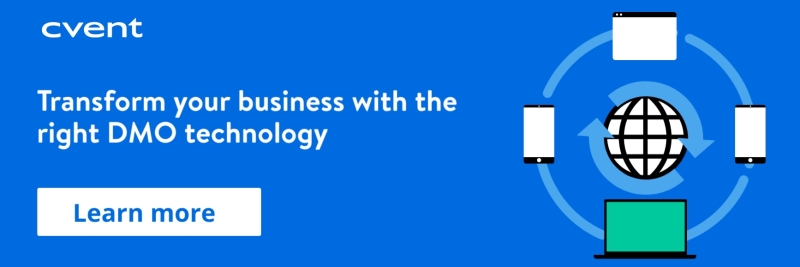
The incentive travel industry as a whole is rebounding from its recession years ago, largely due to the backlash it received from the media and politicians, and from the COVID-19 pandemic. According to the 2019 Incentive Research Fund index, 84% of U.S. businesses used non-cash incentives to retain and motivate their employees, with incentive travel being a popular option before the pandemic. Now with the looming economic recession, non-cash incentives can be a great way to retain employees.
And it’s clear why.
Incentive programs offer a lot of benefits
Like other perks, incentive travel is used to boost employee engagement and productivity. It works by encouraging employees to improve their performance and reach goals. This is especially motivating for younger and mid-career employees.
As of 2020, Millennials make up half of the world’s workforce . And if there’s one thing Millennials love, it’s travel. They’ve reportedly made travel more of a priority than any generation before them . So it’s easy to see why incentive programs are a great fit for most organizations.
Not only that but a travel program helps organizations create a culture of collaboration and commitment to a shared mission. Unifying teams through experiences rather than monetary incentives alone promotes better relationships with the company and positive associations with the business they work for.
This level of customization is one of the most attractive benefits of incentive travel. Not only do businesses have control over what activities they offer but they can also stay within budget and book for their specific party size.
Ni Wayan, Editor and Contributor at Balipedia , adds that the benefits for employers don’t stop there. “I believe that incentive travel is one of the most famous non-cash prizes that’s used by companies to motivate sales staff, partners, and even consumers to greatly improve sales, keep their best reps from going, and motivate the remaining sales staff to pick it up,” says Wayan.
Incentive travel is also a great way to tie in your company’s values. Christopher Hill of Hands Up Incentives told Cvent via email that his company “specializes in sustainable incentive trips that include a CSR component in order to engage employees, bring them closer together, and enhance their reputation.”

There are many examples of incentive travel
Shure shared with Cvent the following examples of incentive travel packages she has organized:
● An all-expenses-paid trip to Bungalows Key Largo ● All-expenses-paid trip to Maui for a week ● A three-day cruise to the Bahamas ● Four nights at an all-inclusive hotel or resort
And Hill provided another example of a Hawaiian incentive travel package they arranged recently. It “included two days of building a community cultural center in a low-income part of Honolulu.” They also booked a luxury hotel and gala dinners for the group.
As for activities, Hill said they enjoyed everything from “cage shark swimming to mountain biking to a private tour of Pearl Harbor”.
Is incentive travel really worth the investment?
Annual incentive travel spending averaged $4,260 per employee in the U.S. before the pandemic. The return on investment that companies see in their travel programs is often measured in terms of profitability. This method helps determine if the program is working and, in turn, generating higher profits.
Many business owners are not convinced that paying for a perk is worth the intangible value it brings. Nevertheless, companies that choose to create incentive travel programs gain increased employee engagement, satisfaction, and profitability.
These can be measured through various metrics by department or by employee survey. So it is, in fact, more substantial than most executives believe.
And according to the IRF's Anatomy of a Successful Incentive Travel Program , “Examining the tenure and company performance ratings of 105 of the employees who earned the incentive trip, researchers found that 55% of incentive travel earners had top performance ratings and tenure of four years or more, showing a very real correlation between incentives, longevity and quality.” In other words, not only are incentive travel programs fun, they’re also impactful at a high level.
In a nutshell: incentive travel is an investment that's made to maximize business results.
Get to know the bleisure traveler
Wondering how to plan an incentive travel program employees will love?
It takes a little planning and forethought, but the process is relatively straightforward.
1. Have a vision
Set clear, achievable goals that are aligned with strategic business objectives. These goals should be measurable and specific. Even if your company isn’t ready to develop an entire program, you could still offer smaller perks such as plane tickets and a hotel voucher.
2. Know your team
Planners will also need to have a strong understanding of what motivates their employees. It should feel like an award that employees wholeheartedly respond to, so much so that they feel encouraged to develop new skills and ideas to unlock this achievement.
3. Make everything trackable
Adhere to a consistent communication style. Whether it's through a software system or an interactive leaderboard, employees must be able to follow their progress and prove it through detailed records.
4. Promote it often
Supporting the travel program is an integral part of a company's strategy. It should be promoted regularly and celebrated at all levels. During this qualification period, team members will work hard to reach their goals. The continuous effort and excitement management puts into building up the anticipation for the trip will motivate employees even more.
5. Evaluate your program
Continual evaluation of your program rewards and structure is key to sustaining this strategy long term. Use a combination of KPI data linked to goals and an end-of-event assessment to determine if the program is meeting its intended purpose. Simply by asking attendees to rate the events and their overall experience, companies can easily measure the program's success.
6. Reap benefits long term
In that same study conducted by IRF, employees who earned an incentive getaway continued to perform at an elite level after they returned which was inspired by their trip.
Why should you partner with a professional to create your program?
Companies like Shure’s help businesses organize, book, and manage incentive travel. “Susan Shure Travel can put together any kind of employee incentive you want,” says Shure. “We can even arrange for you to charter a cruise ship as a company incentive.” As you can tell by now, the only limit to incentive travel is your imagination.
Follow the road less traveled to secure deals
In an email to Cvent, Broke Backpacker Founder and CEO Will Halton said that there is one often overlooked department of any travel brand you should contact directly when looking for affordable incentive trips. “If you are passionate about travel, look to speak to the marketing team of certain companies to see whether you can work together. Please note that this does[n’t] mean free stays or travel. It means creating a relationship which will help you explore the destination but also help the company to attract new audiences. A relationship is way more valuable in the long term [than] a discounted stay for one or two nights.”
In other words, this long-term strategy is great for securing travel incentives as long as you develop a network of hospitality marketers.
Up next, check out these fabulous venues and destinations for your next travel incentive getaway in The Palm Beaches .
Cvent Guest
Cvent is a market-leading meetings, events, and hospitality technology provider with more than 4,000 employees, ~21,000 customers, and 200,000 users worldwide.

More Reading
Country club marketing: how to attract event planners, independent hotel marketing: 10 strategies for beating big-name brands, congratulations to the 2024 excellence awards winners.
Subscribe to our newsletter

What Is Incentive Travel? Definition & Benefits

It’s no secret that offering an incentive to employees is a key factor in boosting performance, sales, and engagement.
So with that in mind, we answer the question, “What is incentive travel?” with a definition and the top benefits of offering an incentive trip program.
What Is Incentive Travel?
Incentive travel is a specific trip or tour offered to top-performing employees as a way to motivate them to make more sales, gain more customers, and/or improve overall performance. By offering an incentive trip, companies are able to drive their business goals and recognize top performers.
An incentive trip can be taken as a group or an individual vacation for the employee and their families.
Benefits of Offering an Incentive Trip
Offering an incentive trip has plenty of benefits, so we’ve outlined the top reasons why your company should start an incentive trip program today.
1. Company growth and increased sales
To reiterate, people like rewards. Employees respond to incentives and, in return, target sales are more likely to be met and there could be an increase in business growth. By giving employees a goal to strive for, it promotes productivity gains that could potentially be seen across the board.
The increase in sales and productivity driven by the workforce will far outweigh the cost of offering an incentive trip. Additionally, by making employees feel valued, this will also likely increase sales and overall performance.
2. Stronger relationships and increased loyalty
Not only will employees be incentivized to sell more or boost their overall performance, but companies that offer incentive travel are also able to build stronger relationships with their employees.
Everyone wants to be rewarded for their hard work and employees recognize when companies offer those rewards. Offering an incentive trip will not go unnoticed.
Additionally, employees may be more likely to stay with a company that offers these rewards. Company loyalty is extremely important in long-term employee retention and incentive travel can help with that.
3. Extra professional development time
During an incentive trip, many companies opt to use some of the time to promote additional professional development through workshops and seminars.
Certainly, one of the most important parts of an incentive trip is to allow employees to relax and reap the benefits of their hard work, but by setting aside a couple of hours for professional development, employers are given the opportunity to blend leisure and learning.
4. Family time leads to a better support network
Many companies offer incentive trips for employees and their families. By allowing their families to join, companies are also promoting a healthy family support system.
Travel creates long-lasting memories and hard-working employees deserve to take some time out with their families to enjoy these memories together. This will hopefully promote high productivity for years to come.
5. Company bonding
Some companies treat incentive travel as more of a retreat for their employees to get to know each other, network, and team build. Whether you are getting the entire team together or a select few of the top sellers, this is an excellent opportunity to allow for some intercompany bonding.
This could also lead to higher sales or company growth because employees are able to get to know each other better on a much different level than they normally would in the office.
This is especially beneficial for companies spread out across the country or those that mainly work remotely. There’s nothing like an in-person connection and an incentive trip does just that. And it’s a lot of fun for everyone!
At the end of the day, offering incentive trips for employees is a win-win for everyone. Employees are encouraged to grow their productivity while they are also shown that their company values them and rewards them for their hard work. The company benefits from this hard work by hopefully seeing growth in the bottom line.
As a travel agency specializing in incentive travel, contact us and let us help you plan an incentive trip to motivate your employees and bring your company to a whole new level!
You may also like...

9 Tips for Hosting a Bachelorette Party at an All-Inclusive Resort

How to Choose a Caribbean Destination Wedding Location
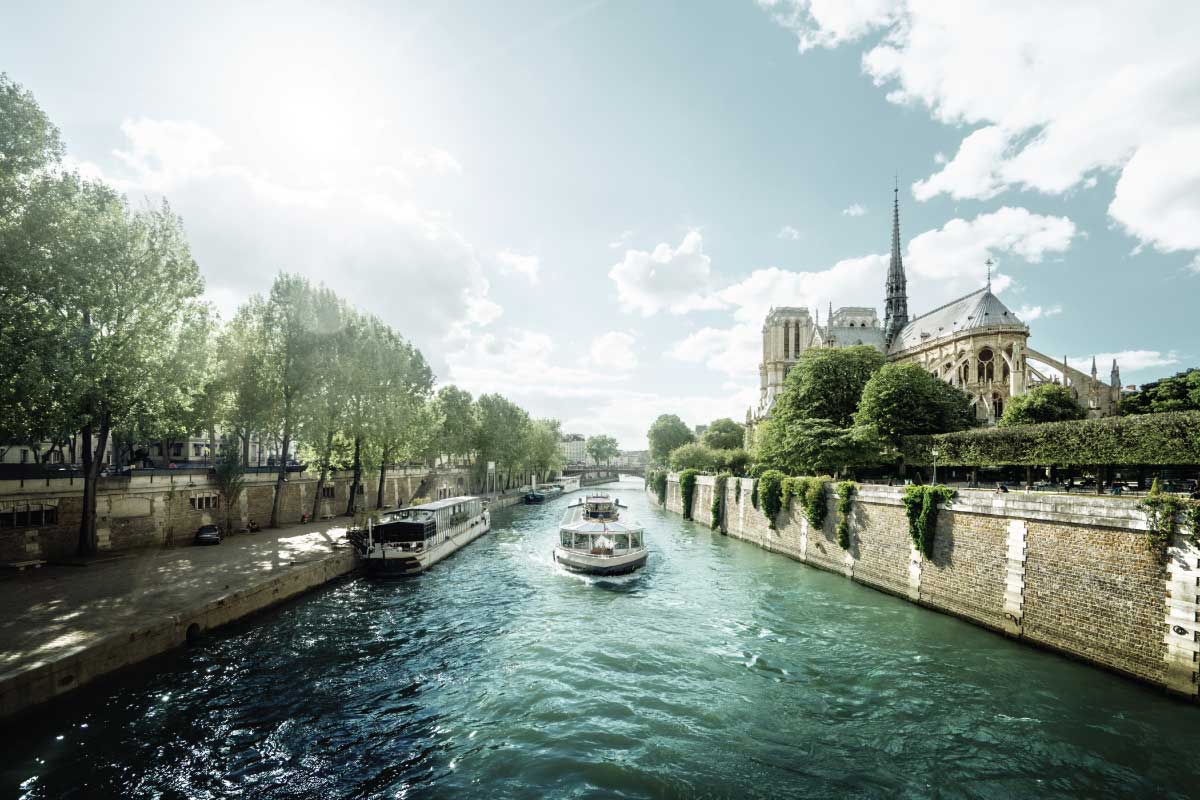
Elevate Your Company Retreat With a River Cruise
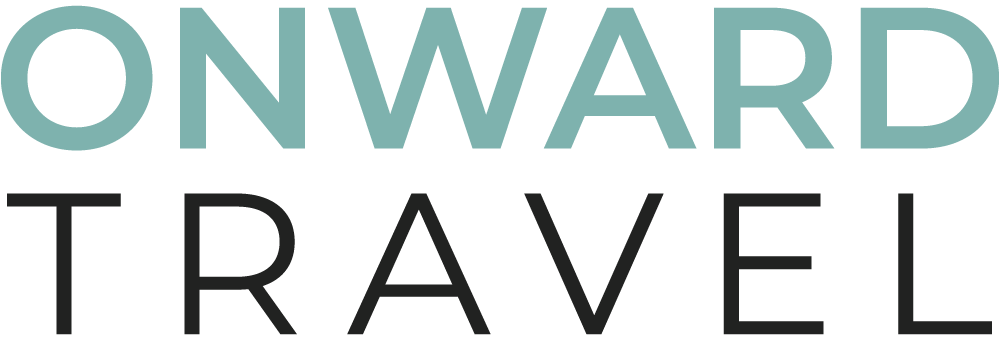
Request a Free Quote

What is Incentive Travel? Definition, Main Purpose & Examples
The Deluxe Incentive Travel Experience is a wonderful way for a Company to reward its people for a job well done. But let’s look back, for a minute, where it all started.
Incentive Travel: definition and main purpose
The concept of “Incentive” was invented during the late 20’s in the United States, where major corporations that started massive production of consumer goods needed large teams of salespeople to acquire customers. Large companies like, Ford, General Electric and The Coca Cola Company assigned territories, set quotas and began to measure salespeople success. A strong competition in every field compelled these corporations to professionalize their employees and reward them with cash bonuses or induction into elite club . This was the beginning of the unstoppable success of this business.
Later on in the 50’s , giving an “incentive” meant to give not only cash bonuses but also extra perks such as company cars, country club memberships and private secretaries and the use of vacation homes…the latest being one of the most wanted perks! Here we go, with the first concept of incentive travel.
In the past 40 years, incentives of all kinds were used to attract and keep good salespeople in the same corporation . The most sophisticated electronic gifts and home appliances, child-care assistance and stock options, are a few of the ways, used to lure employees to sell more and work as hard as possible to meet their quota.
One of the most wanted and alluring perks of all times has become the concept of Deluxe Incentive Travel .
Incentive Travel: Examples
Planning incredible trips to the most wonderful destinations in the world , which involves staying in the best deluxe hotels available, has become a very popular and acclaimed way to reward your best people . These trips are planned so that the activities and all involved have an aura of “exclusivity” and hard to do on your own. This way participants know that they are in for an incredible experience that money cannot buy, a once in a life-time event to be “earned” at all costs.
As of today, it is still one of the most wanted prizes, so most companies invest a lot in having an expert team to plan their Incentive Annual Trip, with the most possible exclusivity and highlights. The result is hundreds of Deluxe Incentive Trips , now offered in most nations and corporations, all over the world’s most exclusive destinations.
Incentive Travel trip in Italy
Italy is one of the most wanted locations always the Top Ten Mice destinations for Incentive Travel . Our country offers so many different options , from the Art Cities like Rome, Florence and Venice, to wonderful seaside destinations like the Amalfi Coast or The Italian Riviera with Portofino and the Cinque Terre. Not to talk about our wonderful islands such as Sardinia and Sicily.
In addition to History and Art, in Italy guests on an Incentive Trip can also enjoy wonderful deluxe hotel properties, tasty food and rare wines, great shopping, incredible venues to have a Gala Party and last but not least the Italian Way of Life. A unique deluxe experience to treasure, this is the aim of Incentive Travel and the people who plan it and the final guests who enjoys it.
Incentive Travel & Fourth Dimension Italy
Fourth Dimension Italy was started in Rome in 1975, to help the first attempts of Corporations from North America, to have their employees experience the best Italy could offer.
Still today, we specialise only in Deluxe Incentive Travel and Meetings taking the greatest care in details and quality of execution of any activity Incentive Travel involves. We have dedicated and experienced staff all over the country, that will make Incentive Programs and Meetings a sure success. Fourth Dimension Italy reputation in the Incentive Travel World in North America, Great Britain and Australia speaks for itself.
Previous Post Best Incentive Travel Destinations In Italy For 2022
Leave a reply cancel reply.
Save my name, email, and website in this browser for the next time I comment.
Fourth Dimension Italy DMC / Italy made 4 you
We have been a leading DMC in Italy since 1975, creating, organizing and delivering outstanding programs to clients throughout the world.
Destinations
Top destinations, rome florence & tuscany venice amalfi coast, sorrento & capri milan & como lake portofino & italian riviera sicily sardinia apulia, company destinations services blog testimonials contacts, privacy policy, +39 06 420 16 297, [email protected].
© 2024 FDItaly. Fourth Dimension Italy SRL Unipersonale
- Rome: the eternal city
- Florence & Tuscany
- Amalfi Coast, Sorrento & Capri
- Milan & Como Lake
- Portofino & Italian Riviera
- Testimonials

Send a Request!
Fill out the form below in order to send us an early request. A member of our Team will take in charge your case and will contact you back as soon as possible. Thanks!
Understanding Incentive Travel in the Travel Industry
Incentive travel is a specialized niche within the travel industry that involves rewarding employees, partners, or customers with travel experiences as a form of motivation, recognition, or reward for achieving specific business goals or milestones. This type of travel is often used by companies to boost employee morale, enhance loyalty, and drive performance by offering unique and desirable travel experiences as incentives. Incentive travel programs are designed to inspire and motivate individuals to excel in their roles, increase productivity, and achieve set targets.
Key Components of Incentive Travel Programs:
1. Performance Goals: Incentive travel programs are typically tied to specific performance metrics or goals that participants need to achieve in order to qualify for the reward. These goals can be sales targets, customer satisfaction ratings, productivity levels, or any other measurable criteria that align with the company's objectives.
2. Reward Structure: The rewards offered in incentive travel programs can vary widely, ranging from luxury vacations to exotic destinations, adventure travel experiences, cultural tours, or relaxation retreats. The level of reward often corresponds to the level of achievement or performance demonstrated by the participants.
3. Exclusivity: Incentive travel programs are designed to be exclusive and aspirational, offering participants the opportunity to access unique travel experiences that are not available to the general public. This exclusivity adds value to the reward and makes it more desirable to participants.
4. Customization: Incentive travel programs are often customized to suit the preferences and interests of the participants. Companies may offer a range of destination options, activity choices, and accommodation types to ensure that the reward is tailored to the individual preferences of each participant.
Benefits of Incentive Travel Programs:
1. Increased Motivation: Incentive travel programs can boost employee motivation and engagement by providing a tangible and exciting reward for achieving set goals. The promise of a luxurious vacation can inspire individuals to work harder and perform better in order to qualify for the reward.
2. Enhanced Performance: Studies have shown that incentive travel programs can lead to improved performance and productivity among participants. The prospect of earning a coveted travel reward can drive individuals to exceed their targets and deliver exceptional results.
3. Improved Morale: Incentive travel programs can have a positive impact on employee morale and job satisfaction. The opportunity to travel to exotic destinations and enjoy unique experiences can create a sense of excitement and appreciation among participants.
4. Enhanced Loyalty: By rewarding employees, partners, or customers with memorable travel experiences, companies can foster loyalty and strengthen relationships. Incentive travel programs can help build long-lasting connections and encourage repeat business.
Types of Incentive Travel Programs:
1. Individual Incentive Trips: These programs reward individual participants who achieve specific performance targets with a personalized travel experience. Participants may have the flexibility to choose their preferred destination or travel dates.
2. Group Incentive Trips: Group incentive travel programs reward teams or departments that collectively meet or exceed performance goals. These programs often involve group travel to a shared destination or participation in team-building activities.
3. Recognition Events: Some companies organize incentive travel programs as recognition events to honor top performers, celebrate achievements, and motivate employees. These events may include award ceremonies, gala dinners, and team-building activities in addition to travel rewards.
Challenges of Incentive Travel Programs:
1. Cost: Incentive travel programs can be expensive to implement, especially for companies with limited budgets. The cost of providing luxury travel rewards, accommodation, activities, and logistics can add up quickly and may require careful budgeting.
2. Logistics: Planning and coordinating incentive travel programs can be complex, especially when organizing group trips or international travel. Companies need to manage transportation, accommodation, activities, and other logistical details to ensure a seamless and enjoyable experience for participants.
3. Measuring ROI: Evaluating the return on investment (ROI) of incentive travel programs can be challenging, as the impact on employee performance, morale, and loyalty may not be immediately quantifiable. Companies need to establish clear metrics and goals to measure the effectiveness of their incentive travel initiatives.
Conclusion:
Incentive travel is a powerful tool used by companies to motivate, reward, and recognize employees, partners, and customers for their achievements. By offering unique and desirable travel experiences as incentives, companies can drive performance, boost morale, and enhance loyalty among participants. While incentive travel programs come with challenges such as cost and logistics, the benefits of increased motivation, improved performance, and enhanced loyalty make them a valuable investment for organizations looking to inspire and engage their stakeholders.
- 3 itinerary generations (non-logged in)
- 5 itinerary generations (with free account)
- Up to 14-Day Itineraries
- Maps Integration
- PDF Downloads
- Standard support
- Everything in Basic Plan and
- Unlimited itinerary generations
- Personalized packing lists
- Additional itinerary details (hotels, transportation, travel requirements, local sayings, etc.)
- Ad-free experience
$3 / month or $30 / year (2 Months Free)
€2.76 / month or €27.60 / year (Save €5.52) £2.37 / month or £23.70 / year (Save £4.74) ₹249.00 / month or ₹2,490.00 / year (Save ₹498.00)
- Everything in Plus Plan and
- Up to 30-Day Itineraries See Example
- Smartest AI with latest updates
- Private Itineraries
$5 / month or $50 / year (2 Months Free)
€4.60 / month or €46.00 / year (Save €9.20) £3.95 / month or £39.50 / year (Save £7.90) ₹415.00 / month or ₹4,150.00 / year (Save ₹830.00)
"This is super cool. I did three days in a relatively small town, and it came up with a nice sounding trip (relaxation focused)."
- Redditor StillKickinginAZ
"This is incredible"
- Jenny Turner
"This is so awesome! We hired a travel agent for $200 and your AI just spit out almost exactly the same itinerary the agent planned for our honeymoon in Greece!"
Share Itinerary
- English (CA)
- English (UK)
- Deutsch (DE)
- Deutsch (CH)
The complete guide for incentive trips for employees
How to plan an incentive trip: a step-by-step guide, what to consider when planning an incentive trip, setting clear goals for the trip, setting a budget, choosing the destination and dates, need help booking and managing your company’s incentive trips, planning the itinerary and activities, coordinating logistics and travel arrangements, communicating and engaging with participants, measuring the success of the incentive trip, provide memorable experiences with successful incentive travel management.
?)
See how TravelPerk’s can streamline incentive trip planning and manage all your travel needs in one place.
?)
Make business travel simpler. Forever.
- See our platform in action . Trusted by thousands of companies worldwide, TravelPerk makes business travel simpler to manage with more flexibility, full control of spending with easy reporting, and options to offset your carbon footprint.
- Find hundreds of resources on all things business travel, from tips on traveling more sustainably, to advice on setting up a business travel policy, and managing your expenses. Our latest e-books and blog posts have you covered.
- Never miss another update. Stay in touch with us on social for the latest product releases, upcoming events, and articles fresh off the press.
?)
- Business Travel Management
- Offset Carbon Footprint
- Flexible travel
- Corporate Travel Resources
- Corporate Travel Glossary
- For Travel Managers
- For Finance Teams
- For Travelers
- Careers Hiring
- User Reviews
- Integrations
- Trust Center
- Help Center
- Privacy Policy
- Cookies Policy
- Modern Slavery Act | Statement
- Supplier Code of Conduct
- Daily Crossword
- Word Puzzle
- Word Finder
- Word of the Day
- Synonym of the Day
- Word of the Year
- Language stories
- All featured
- Gender and sexuality
- All pop culture
- Writing hub
- Grammar essentials
- Commonly confused
- All writing tips
- Pop culture
- Writing tips
Advertisement
incentive travel
- a vacation awarded to employees as a bonus in order to motivate them.
What is Incentive Travel?
Making the business case for incentive travel.
Reward and Recognition – why use incentive travel?
In its purest sense, Incentive Travel is a performance enhancement tool used to inspire outstanding workplace behaviours against clearly defined goals.
It’s a key part of the reward and recognition programs that organisations offer to motivate, incentivise and inspire outstanding performance amongst their workforces.
Cash bonuses, premium merchandise, memberships and flexible benefits are other types of reward typically offered by organisations:
Cash bonuses are widely deployed in organisations to reward performance. They have the advantage of being easy to implement and everyone understands the value of cash.
That said, they are ephemeral, here today, gone tomorrow. Cash often gets absorbed into a qualifier’s regular expenses so there is little to associate the reward with the organisation that offers it and the reward can be easily forgotten.
Merchandise is often used as a reward instead of cash and this is usually for fiscal reasons. The merchandise used in incentive programs is usually high end or luxury, ie, something a qualifier would not normally purchase on their own behalf.
However, no matter how high-end or premium, the merchandise has a known price so it places a finite value on the reward. It may be validating for the qualifier to have an over-sized TV screen, but the sense of validation may be short lived as there will always be bigger and better TV screens.
Some organisations offer memberships (golf club, gym, yoga etc) and benefits tailored to the specific needs and interests of the qualifer.
These rewards are already more enduring in their value to a qualifer than cash and merchandise, but they still have a finite value and place a specific price on the extraordinary effort that a qualifier made to get them.
Winning a place on an incentive travel program, however, has clear advantages over all the other tried and tested rewards. The principal advantage is that it’s “priceless”, offering an extraordinary travel experience, comprised of experiences not available in a tourist brochure. When planned well, these travel experiences can be deeply impactful, even transformational for the qualifier.
There are other benefits, too. Incentive travel is usually offered to a qualifier PLUS a significant other. Thus the sponsoring organisation is facilitating an outstanding shared experience for two people – both can look forward to the trip together (significant other acts as a performance catalyst) and both can treasure the memories it generates.
There are benefits to the sponsoring company too in that the incentive travel experience facilitates relationship building between qualifiers and officers in an organisation and can be a tangible way to put express, and get buy-in to, company culture.
MICE: Incentive Travel = the “I” in MICE
There is no universally agreed category header to describe the industry and marketplace variously known as The Meetings Industry, MICE, Business Tourism, The C & I sector, Business Events, The Meetings and Events Industry.
Different Destination Marketing Organizations (DMOs) favour different category headers and, moreover, argue vehemently against the use of others.
MICE, an acronym meaning Meetings, Incentives, Conferences, Events is widely used in Asia and Europe but often disliked in North America and Australia where Business Events has gained currency. The UK prefers The Meetings Industry.
Incentive Travel is the “I” in MICE. While corporate meetings usually seek to inform or educate participants, incentive travel seeks to motivate and inspire them. Incentive travel is described by the Society for Incentive Travel Excellence (SITE) as
“... a powerful business tool to reward and unlock human potential to achieve corporate objectives.”
Incentive travel, therefore, is about reward and recognition – rewarding team members with an extraordinary travel experience for delivering outstanding results, recognising these high achievers before their peers and publicly validating their achievements.
For incentive programmes, the “appeal” of the destination is crucial as an all expenses VIP trip to this destination is the prize or the reward awaiting the qualifiers (those who exceed the targets set for qualification for the trip). Unless the destination is truly attractive and appealing, it will not trigger the emotional reaction necessary to motivate the employee to qualify for the trip .
The objectives of an incentive travel programme are many and can include:
- increasing sales
- building morale and loyalty
- increasing market share
- encouraging teamwork and better customer service
Incentive travel is used as a motivational tool across many industry sectors but is used particularly by the following ones:
- Financial and Insurance
- Fast Moving Consumer Goods (FMCG)
- Direct Selling Companies (sometimes known as Network Marketing)
The supply chain for incentive travel starts with the organisation that decides to launch an incentive travel program (often called the “end user” or corporate planner) and includes a plethora of suppliers including specialist agencies in both the source market and destination, airlines, transportation companies, hotels, venues, restaurants, visitor attractions, speaker bureaux and AV / Production companies.
Of all the MICE segments, Incentive Travel is accepted as the segment that deploys the most touch points in both a source market and a destination.
Often the supply chain is divided into Buyers (corporate end user, agencies in source market) and Suppliers (airlines, agencies in destination, hotels, venues etc).
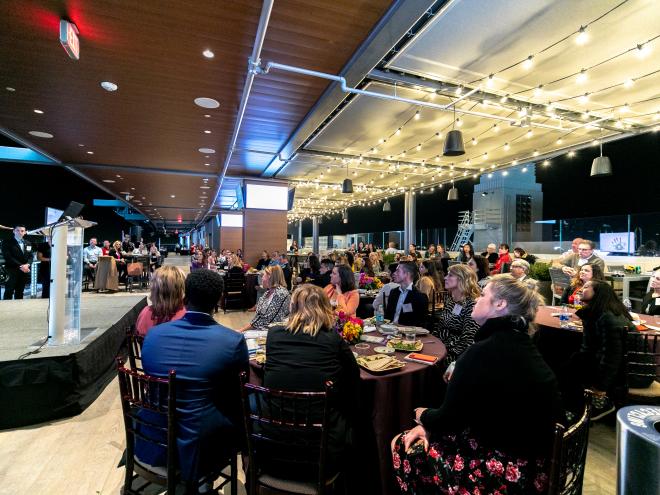
Making the Business Case for Incentive Travel
As the leading voice for the incentive travel industry, SITE & SITE Foundation are embarked upon an ongoing advocacy campaign to demonstrate the value of incentive travel as an effective marketing and business tool.
By providing education and certification programs, networking opportunities, industry research, and advocacy for its members and the incentive travel industry at large, SITE and SITE Foundation work to promote the value of incentive travel to businesses; emphasizing the positive impact that incentive travel can have on employee motivation, performance, and job satisfaction.
We need your help to collect the case studies that illustrate that effectiveness.
Why should you get involved?
By harnessing the experiences of incentive travel users, our campaign’s goal is to prove that incentive travel means business results; therefore increasing your incentive business, and its perceived value.
How can you get involved?
Submit a statement and brief case study by filling out the Campaign Brief Form ; both sections #1 and #2. Submit completed forms via email attachment to [email protected] .
SITE Crystal Awards
Considered the highest honor in our industry, the SITE Crystal Awards recognize creative, practical and truly memorable incentive travel programs that keep employees engaged, drive business results and improve the bottom line for global corporations.
The awards are aimed at incentive travel professionals all over the world. Winners represent excellence in their profession and offer inspirational examples of how incentive travel experiences benefit qualifiers, their companies and the destinations where they are hosted.
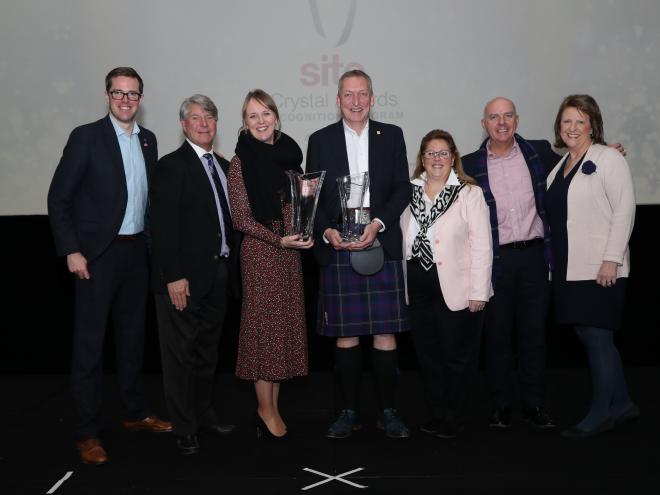
Surely the most compelling examples of the business case for Incentive Travel are SITE’s annual Crystal Award winners? Selected by our global panel of experts, the winners of a Crystal Award embody in their program design and delivery undisputed examples of excellence illustrating, convincingly, why incentive travel is THE most effective reward in a company’s reward and recognition initiative.
Foundation Research
SITE Foundation was established by SITE to raise funds and support research, education and advocacy projects on behalf of the incentive travel industry.
Monies raised by SITE Foundation enable us to make the business case for incentive travel and highlight the transformational potential of travel experiences on individuals, enterprises and communities.
Since 2017 SITE Foundation has invested over $1.25million to drive the business case for incentive travel and support professional development within the industry.
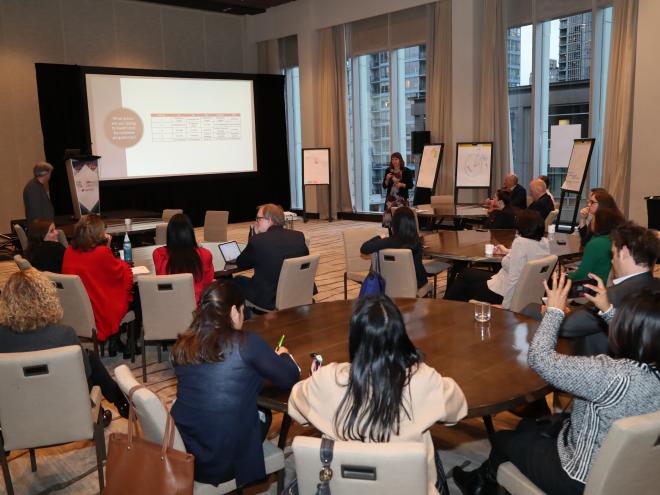
Evidence-based research is crucial when it comes to making the business case for Incentive Travel. That’s why it’s a core tenet of SITE Foundation’s vision and mission. Each year SITE Foundation commissions original research on various aspects of Incentive Travel to equip Incentive Travel professionals all over the world with data to underpin their important work on behalf of national, regional and global corporations.
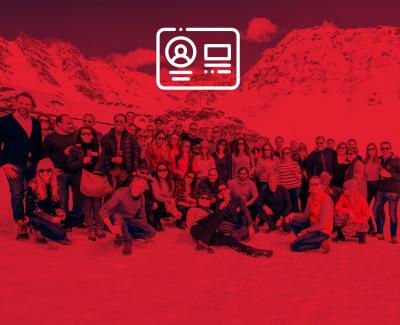
SITE offers a number of options for individual and group membership
Go to Membership
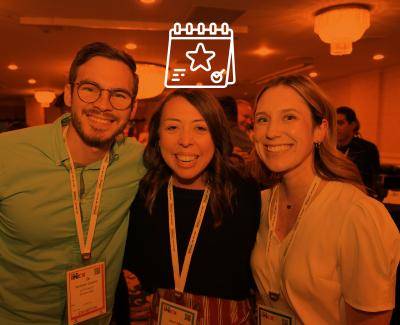
Register for in-person and virtual events organised by SITE HQ and our Chapters
Go to Events
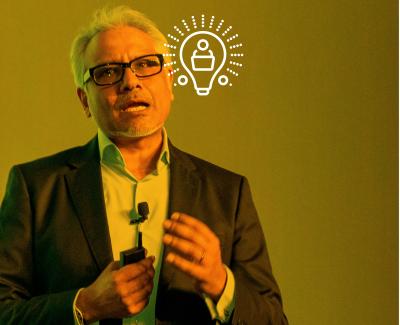
Check out SITE’s rich portfolio of webinars, online courses and educational resources
Go to Learn Hub
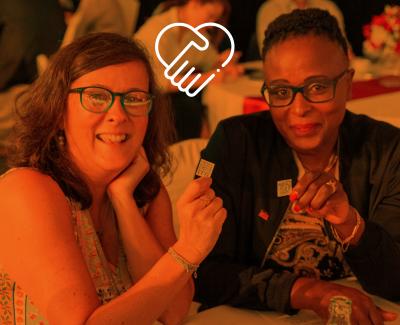
Since its formation in 1987, SITE Foundation has invested over USD$10M in our industry
Learn about the Foundation
Connect with us
- Virtual Services
- Destination Management
- Corporate Events
- Board & Executive Retreats
- Global Events
- Special Events
- Government Meetings
- Trade Shows
- Incentive Programs
- Leadership & Governance
- Financial Management
- Membership Management
- Marketing & Communications
- Sponsorship Fulfillment
- Event Support
- Strategic Oversight
- Legislative Affairs
- Content Activation & Communication
- Web Design & Digital Media
- Event Branding & Production
- Meet Our President & CEO
- Our Services
- Testimonials
An Expert’s Guide to Planning Incentive Travel

Incentive travel management is one of Paragon Events’ many areas of expertise and also one of our team’s favorite types of events to facilitate! The following tips will help produce an incentive program that suits your budget, reflects your company culture, and produces favorable ROI.
WHAT ARE YOUR INCENTIVE TRAVEL PROGRAM GOALS?
Outline your incentive travel budget & objectives.

The first step in planning an incentive trip is to clearly establish and define your goals. This will help you to identify the target audience within your company. Once you determine the departments or key positions to incentivize, you can create internal qualification guidelines. This will also help you better measure your actual ROI later on. From experience, our clients often consider the following top objectives:
- Increased sales
- Increased productivity
- Improved customer service
- Lower turnover and absenteeism
Identifying some of these goals may also help to generate your program budget. How much is turnover costing your organization annually? Once winners meet the goals of the competition, how is that going to influence an increase in your overall sales revenue? Identifying these factors can help you delineate where to set your budget.
Generate Interest and Track Performance
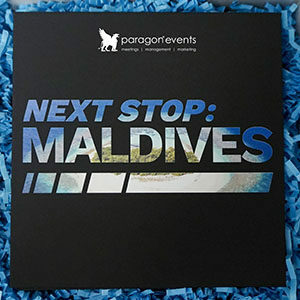
- Create engaging event branding to entice employees
- Hold a grand unveiling of the destination and qualification requirements ( Do this early to build anticipation and excitement! )
- Maintain a schedule of internal communication to promote the trip and encourage employees to embrace the challenge
The key is to keep your employees engaged and competing to win!
Incentive Travel Risk Management
For any event, risk management plans are a necessity. As industry leaders in risk and crisis management, Paragon Events assists our clients in developing emergency preparedness plans for their incentive programs. We recommend several health and safety measures throughout the event planning to ensure a smooth program flow. These include insurance, security, communication plans, destination research, and documentation of protocol for specific locations and venues.
MAKE YOUR INCENTIVE TRIP WORTHWHILE
Destination and partner selection.
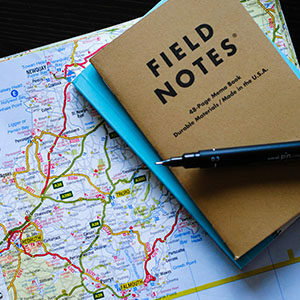
Destination appeal is an important factor in holding your team’s motivation high. When selecting your incentive trip destination, there are several factors to keep in mind:
- Value of your currency. Will you be able to get enough bang for your buck? Are you traveling nationally or internationally? Southeast Asia and New Orleans are current examples of great locations where your money will go a long way!
- Tax benefits. Some destinations have little to no sales tax (Langkawi in Malaysia is one of our favorites!)
- Hotel loyalty. Does your company receive perks from a certain hotel brand for business travel? Member points can be a bonus for your attendees.
- Travel experience. It’s important to examine the safety and infrastructure of your destination. Consider the general activity level for attendees and make sure to distribute strong, travel guidelines.
Once in a Lifetime Experiences
Creating highly memorable and authentic experiences is what incentive travel is all about. Trips build lasting memories, improve workplace camaraderie, and provide tangible experiences more valuable than money or cash bonuses. Paragon Events strives to provide options to our clients that are unique, once-in-a-lifetime opportunities. Picture this:
- Swimming with whale sharks in the Maldives
- Racing dragon boats in Malaysia
- Sleeping in glass igloos under the northern lights in Finland
- Experiencing breathtaking vistas of Victoria Falls in Zimbabwe on a train journey
- Celebrating the full moon rise on the shores of Western Australia
- Catching a Giant Tuna off the coast of Nova Scotia
Currently, a trend we are seeing is allowing guests to select their activities in smaller groups to create a more personalized experience. This is a great opportunity to incorporate activities focused on wellness and social responsibility as well.
Immerse in Local Culture

- Share naturally-sourced gifts and artisan products such as custom-tailored traditional outfits
- Hire local musicians, artisans, and performers as entertainment to showcase historical styles
- Incorporate local and regional delicacies into food and beverage menus
Think beyond the big box hotels and popular tourism sites (this is the secret to finding hidden gems in any destination!).
MEASURE YOUR INCENTIVE TRAVEL SUCCESS
Hard dollar and soft power benefits.
Increased sales and productivity are major benefits of hosting an incentive program. There are several other benefits for your organization—some of which may be surprising. Take a look:
- Improved employee engagement
- Positive relationship building between employees and management
- Enhanced customer satisfaction
- Increased mindshare in the marketplace
- Greater ability to recruit new employees and partners
- Stronger brand compliance
The value of these benefits must be carefully considered and held in high regard. While hard dollars are very important, engagement, growth, and overall employee satisfaction can be defining factors for your organization.

ROI Calculation Methods
The purpose of holding incentive programs is to achieve certain internal goals whether they are direct, implied, or both. That means it is paramount to be able to look back and report on proven results. There are several ways that we ensure our clients are truly calculating their return on investment:
- Net income margin/incentive investment
- Incremental sales year over year
- Employee satisfaction measurement
- Client satisfaction measurement
- Executive and winners post-event survey
Aside from the subjective employee benefits, the financial payoff for companies as a result of incentive travel is undeniable. A report by Oxford Economics USA found that for every dollar invested in business travel, companies realize $12.50 in incremental revenue.
It Doesn’t End Onsite

Incentive programs have boundless benefits for an organization. Let us put these tools into action and build a successful initiative that you and your employees will look forward to each year. Reach out to our team to learn how incentive travel can enhance your company goals.
This blog has been authored by Diane Ambrogio .
Related Posts

Notice of cookies: We use cookies on this website to improve your browsing experience. For more information, please read our Privacy Policy . By closing this message you agree to accept cookies from Paragon Events Inc. Cookie settings ACCEPT
Privacy Overview
How to Use incentive in a Sentence
- The company is offering a special low price as an added incentive for new customers.
- The rising cost of electricity provides a strong incentive to conserve energy.
- The government offers special tax incentives for entrepreneurs.
Some of these examples are programmatically compiled from various online sources to illustrate current usage of the word 'incentive.' Any opinions expressed in the examples do not represent those of Merriam-Webster or its editors. Send us feedback about these examples.

Can you solve 4 words at once?
Word of the day.
See Definitions and Examples »
Get Word of the Day daily email!
Examples of 'incentive' in a sentence
Examples from collins dictionaries, examples from the collins corpus.
Quick word challenge
Quiz Review
Score: 0 / 5

All ENGLISH words that begin with 'I'
- Access the entire site, including the Easy Learning Grammar , and our language quizzes.
- Customize your language settings. (Unregistered users can only access the International English interface for some pages.)
- Submit new words and phrases to the dictionary.
- Benefit from an increased character limit in our Translator tool.
- Receive our weekly newsletter with the latest news, exclusive content, and offers.
- Be the first to enjoy new tools and features.
- It is easy and completely free !

About These Results
Advanced Search
Advanced search - signup for sentence stack pro.
Only premium subscribers can use the advanced search. Signup now, or login if you already have an account.
Query Too Long - Signup for Sentence Stack Pro
- Longer queries require a paid membership. Signup / Learn more
- If you are seeking grammar & spelling correction, visit our Sentence Corrector .
Sentence Corrector - Length Exceeded
Get longer grammar checks with Sentence Stack Pro! Paid subscribers can check 3X as much text.
Listen to Audio
Listen to English audio with Sentence Stack Pro! Paid subscribers can hear the spoken English audio of over 300 million sentences.
Get More with Sentence Stack Pro
I'm sorry, but you've exceeded your free submission limit. Sign up for Sentence Stack Pro to unlock greater access to our advanced grammar, style, and syntax tools without distractions. Elevate your writing with suggestions from our AI-driven insights, ensuring your work is not only flawless but impactful.
- 3X Longer submissions
- More submissions per day
- and much more!

Go Pro Today!
- no CAPTCHAs
- more search results
- advanced search
- many more features
Popular Phrases
- render assistance
- do not care for
- most relevantly
Idiomatic Expressions Relevant to Incentive
Accelerate your learning through contextual sentence examples.
© 2024 Sentence Stack | Terms | Privacy Cookies -->

Example sentences for incentive
Incentive in a sentence.
Here below you will find several sentences that illustrate how to use the word incentive in a sentence.
The first was to remove the incentive to go there.
The incentive package was approved in the 1986 legislative session.
It is common for respondents to receive an incentive for participating.
A limited number of cinema tickets for the film were offered as a pre-order incentive .
Toys "R" Us offered an ODST action figure and a US$20 gift card as a buying incentive .
By early 2003, this rule had been deleted to remove the appearance of the kill incentive .
As both men were wealthy landowners, they had little incentive for the program to succeed.
Now that the coup clearly had succeeded, Lodge no longer needed to offer such an incentive.".
If the government has a large majority, it has no need or incentive to compromise with other parties.
As a result of this demand, farmers have been given an incentive to produce milk during winter months.
For Shatner, the incentive was enough that he became the only cast member to consume purple-dyed squid.
Patrick Abell to file a friendly test case to determine the constitutionality of the incentive package.
Desire or incentive value is processed by opioid receptor-related processes in the basolateral amygdala.
CNET and PCWorld considered the DSi Shop to be the most important buying incentive for current DS owners.
The program as enacted by the Board did not give any incentive for anyone to alter their religious views.
Haig spoke of Ball's "unrivalled courage" and his "example and incentive to those who have taken up his work".
In Moral Hazard in Teams, economist Bengt Holmström demonstrated a trilemma that arises from incentive systems.
Wood is also used as a primary building material, only adding further incentive to remove trees from the forest.
The release of dopamine from the mesolimbic pathway into the nucleus accumbens regulates incentive salience (e.g.
However, they declined Bradman's incentive and decided to bat in a low-risk manner, favouring straight-batted shots.
There was a qualification selection incentive for the next following 2014–15 ISU Speed Skating World Cup tournaments.
As a pre-order incentive , the demo disc of God of War II was made available to all customers who pre-ordered the game.
As Lifson commented, the Copeland deal revitalized the industry and "created an incentive to sell these great cards.".
He had made previous efforts to overcome his addiction, but this health crisis was his incentive to become sober for good.
It will remove the incentive for illegal immigration by eliminating the job opportunities which draw illegal aliens here.".
Regnans in Excelsis gave English Catholics a strong incentive to look to Mary Stuart as the legitimate sovereign of England.
Though the wanting of incentive salience may be informed by palatability it is independent and not necessarily reduced to it.
The band's producer/engineer Spot took an incentive and brought Cadena into the studio to record his own vocals for the album.
Oxford Economics USA wrote in a 2009 study that incentive travel investments yielded a return of investment of more than $4:$1.
The mesolimbic pathway regulates incentive salience, motivation, reinforcement learning, and fear, among other cognitive processes.
The console versions were only available as a free pre-order incentive to customers who pre-ordered its sequel, The Fractured but Whole.
They received further incentive in the 1982 election, where Democrat Tony Earl was elected to succeed Republican Lee Dreyfus as governor.
By 1922, Poitevin foals became difficult to sell, and the population dropped dramatically as there was no economic incentive for breeding.
Even if the film itself were not the incredible work of art that it is, Dunst's performance alone would be incentive enough to recommend it".
The economic impact and the AIG effect had negatively affected incentive travel programs in 2010, with spending on incentive travel being reduced.
The key points in the accusations were London 2012's abortive athlete incentive initiative and lobbying by then-British Prime Minister Tony Blair.
Jeff Bakalar of CNET said that owners of the original DS should consider buying a DSi, but that its only incentive for DS Lite owners was the DSi Shop.
The practice of awarding public works contracts mainly to Bumiputras was argued to be stifling Malay competency by providing little incentive to improve.
An extra incentive for Teach's capture was the offer of a reward from the Assembly of Virginia, over and above any that might be received from the Crown.
Possible reasons for this are the very low seed counts, and the rarity of the species, both of which offer little incentive for adaptation to the species.
Rewards for their arrest gave incentive for Romans to capture those proscribed, while the assets and properties of those arrested were seized by the triumvirs.
After negotiating with legislators, Fletcher called another session for August; the session included only the tax incentive program, which the Assembly passed.
The ÚŽ worked to improve conditions for laborers in the Slovak camps and to increase productivity, to strengthen the incentive to keep their workers in Slovakia.
The Turkish nationalist movement depended on support from those who had perpetrated the genocide or enriched themselves from it, creating an incentive for silence.
Where an infrastructure for wildlife tourism has been developed, cash revenue for park management and local communities is a strong incentive for lion conservation.
The rewardfulness of consumption associated with palatability is dissociable from desire or incentive value which is the motivation to seek out a specific commodity.
A signing bonus or sign-on bonus is a sum of money paid to a new employee (including a professional sports person) by a company as an incentive to join that company.
PATT suggests that paying all drivers by the hour would reduce HOS violations by removing the incentive to "cheat the system" by driving more miles than are being logged.
IGN said that the difference between character classes such as Thief and Jew were disappointingly minimal, offering little variety or incentive to replay as another class.
Assuring that all would play on an even playing field in China would give the foreign powers little incentive to dismember the Chinese Empire through territorial acquisition.
Source: https://en.wikipedia.org/wiki/British_nuclear_tests_at_Maralinga, https://en.wikipedia.org/wiki/Martha_Layne_Collins, https://en.wikipedia.org/wiki/Online_focus_group, https://en.wikipedia.org/wiki/Prometheus_(2012_film), https://en.wikipedia.org/wiki/Halo_3:_ODST, https://en.wikipedia.org/wiki/Hare_coursing, https://en.wikipedia.org/wiki/Nguyễn_Ngọc_Thơ, https://en.wikipedia.org/wiki/Arrest_and_assassination_of_Ngo_Dinh_Diem, https://en.wikipedia.org/wiki/House_of_Commons_of_the_United_Kingdom, https://en.wikipedia.org/wiki/Estrous_synchronization, https://en.wikipedia.org/wiki/Star_Trek_VI:_The_Undiscovered_Country, https://en.wikipedia.org/wiki/Palatability, https://en.wikipedia.org/wiki/Nintendo_DSi, https://en.wikipedia.org/wiki/Agostini_v._Felton, https://en.wikipedia.org/wiki/Albert_Ball, https://en.wikipedia.org/wiki/Trilemma, https://en.wikipedia.org/wiki/Golden-crowned_sifaka, https://en.wikipedia.org/wiki/Mesolimbic_pathway, https://en.wikipedia.org/wiki/Fourth_Test,_1948_Ashes_series, https://en.wikipedia.org/wiki/2015_KNSB_Dutch_Single_Distance_Championships_–_Women's_500_m, https://en.wikipedia.org/wiki/God_of_War_II, https://en.wikipedia.org/wiki/T206_Honus_Wagner, https://en.wikipedia.org/wiki/Duff_McKagan, https://en.wikipedia.org/wiki/Ronald_Reagan, https://en.wikipedia.org/wiki/Elizabeth_I, https://en.wikipedia.org/wiki/Jealous_Again, https://en.wikipedia.org/wiki/Travel_incentive, https://en.wikipedia.org/wiki/South_Park:_The_Stick_of_Truth, https://en.wikipedia.org/wiki/Redistricting_in_Wisconsin, https://en.wikipedia.org/wiki/Poitevin_horse, https://en.wikipedia.org/wiki/Kirsten_Dunst, https://en.wikipedia.org/wiki/Bids_for_the_2012_Summer_Olympics, https://en.wikipedia.org/wiki/Ketuanan_Melayu, https://en.wikipedia.org/wiki/Blackbeard, https://en.wikipedia.org/wiki/Banksia_cuneata, https://en.wikipedia.org/wiki/Augustus, https://en.wikipedia.org/wiki/Ernie_Fletcher, https://en.wikipedia.org/wiki/The_Holocaust_in_Slovakia, https://en.wikipedia.org/wiki/Armenian_Genocide_denial, https://en.wikipedia.org/wiki/Lion, https://en.wikipedia.org/wiki/Signing_bonus, https://en.wikipedia.org/wiki/Hours_of_service, https://en.wikipedia.org/wiki/John_Hay
Synonyms for incentive
Another way to better understand how a word can be used is to examine what synonyms it has, and how these synonyms can be used. For example, the word incentive has the following synonyms: bonus , inducement and motivator .
Previous and next word in the database
General information about "incentive" example sentences.
The example sentences for the word incentive that we present on this web site, stems from different official sources. For example one of our sources are articles on Wikipedia that are classified as at least Good articles . But we also use news articles, books and other generic texts to gather example sentences of how the word "incentive" can be used in a sentence. To the right of every sentence you will find a link out arrow that sends you to the source of the sentence, where you can access the full text and context for the presented example sentence. This can be useful because some words can sometimes be difficult to understand with only a sentence for context, whereas the full article or text can help you gain insight on how to use the word "incentive".

IMAGES
VIDEO
COMMENTS
What is Incentive Travel? (With 4 Examples Top Locations)
The 'incentive program' is the entire scheme that leads up to and includes the 'award'. The 'incentive program' might start up to a year in advance, often it's unveiled at the end of the current program—perhaps at an awards dinner on the final evening—in order to build excitement. Format of an Incentive Program.
When it comes to planning your incentive travel program, you have two primary options: handling it in-house or partnering with a specialized agency like MICEHospitality. Each approach has its advantages. In-House Planning. Advantages: Greater Control: Planning in-house allows for complete control over every aspect of the program, from ...
Incentive travel programs can be used to achieve a variety of desired outcomes from improved employee engagement to client spending incentives. Let's take a closer look at four possible uses of corporate incentive travel programs. 1. Employee motivation. One of the best ways to overcome organisational challenges such as low productivity ...
The incentive travel industry as a whole is rebounding from its recession years ago, largely due to the backlash it received from the media and politicians, and from the COVID-19 pandemic. According to the 2019 Incentive Research Fund index, 84% of U.S. businesses used non-cash incentives to retain and motivate their employees, with incentive ...
Incentive travel is a specific trip or tour offered to top-performing employees as a way to motivate them to make more sales, gain more customers, and/or improve overall performance. By offering an incentive trip, companies are able to drive their business goals and recognize top performers. An incentive trip can be taken as a group or an ...
Incentive Travel: Examples. Planning incredible trips to the most wonderful destinations in the world, which involves staying in the best deluxe hotels available, has become a very popular and acclaimed way to reward your best people. These trips are planned so that the activities and all involved have an aura of "exclusivity" and hard to ...
Incentive travel is a specialized niche within the travel industry that involves rewarding employees, partners, or customers with travel experiences as a form of motivation, recognition, or reward for achieving specific business goals or milestones. This type of travel is often used by companies to boost employee morale, enhance loyalty, and ...
Setting clear goals for the trip. The first step in planning incentive travel trips is defining what outcomes your organization wants to achieve by delivering such a memorable experience. As much as incentive trips are designed to reward top performers, you'll also want to keep your company goals in mind. When rewarding employees with travel ...
Incentive travel definition: a vacation awarded to employees as a bonus in order to motivate them.. See examples of INCENTIVE TRAVEL used in a sentence.
Incentive travel, therefore, is about reward and recognition - rewarding team members with an extraordinary travel experience for delivering outstanding results, recognising these high achievers before their peers and publicly validating their achievements. For incentive programmes, the "appeal" of the destination is crucial as an all ...
The first step in planning an incentive trip is to clearly establish and define your goals. This will help you to identify the target audience within your company. Once you determine the departments or key positions to incentivize, you can create internal qualification guidelines. This will also help you better measure your actual ROI later on.
A thoroughly designed incentive program has many advantages, which is why the idea appears in almost every industry.In fact, 94% of the top companies in the United States are using travel rewards post COVID-19.Some of the most obvious benefits to the company and participants include: A hefty boost in productivity; in fact, travel incentives tend to bring in better results and an increase in ...
Conference & Incentive Travel Magazine ranked Jack Morton Worldwide as the number one agency based upon 2015 event-based turnover. In a recent report in Meeting and Incentive Travel, Greece was ranked eighth in the world in overnight stays for conferences. It's difficult to see incentive travel in a sentence .
Sentences. Maybe that's the incentive he needs. 433. 156. Martha's pending due date was an incentive to Betsy. 220. 106. The reward of title and degree and the consequent rise in the esteem of his fellows and himself was also a strong incentive; but the Mithraic faith itself was the greatest factor. 95.
Examples of 'Incentive' in a Sentence
Incentive Travel definition: Vacation travel arranged by or through an employer and awarded as a motivational bonus to qualifying employees or salespeople.
The Sun. (2013) We will also need additional incentives and policies to drive technological innovation and behavioural change. Times, Sunday Times. (2009) Extra incentives will be offered to encourage maths teachers and trainees to work in primary schools. Times, Sunday Times. (2007) This weakened the incentive to provide more for export.
Accelerate Your Learning through Contextual Sentence Examples Context is given when "incentive" is shown in a complete sentence. To create context, it is essential to knit together words that emphasize ideas and set the scene. If the word is a homonym or even unfamiliar, it is crucial to examine the terms surrounding your word to deduce meaning.
22 examples of incentive in a sentence- how to use it in a sentence. Lists. synonyms. antonyms. definitions. sentences. thesaurus. Despair is a great incentive to honorable death. Quintus Curtius Rufus. Frustrated love has been the incentive for many great works. John N. Mitchell.
0. I just searched the meaning of "incentive" and I have a question regarding making sentence with the word "incentive". This is my sentence "The extra money for hardworking employees is my incentive to work hard.". Is it ok to use "my incentive" or is it better/more common to say "an incentive for me to work hard"?
Shopping incentives through select merchants; point redemption for catalog merchandise; extended travel opportunities and more. 0. 0. These extra perk cards offer collectible incentives, discounts and deals relating to the interest or donate a percentage per dollars spent to a foundation or non-profit organization.
Here below you will find several sentences that illustrate how to use the word incentive in a sentence. The first was to remove the incentive to go there. The incentive package was approved in the 1986 legislative session. It is common for respondents to receive an incentive for participating. A limited number of cinema tickets for the film ...
The Nebraska Supreme Court upheld a man's conviction and life sentence for strangling and stabbing his fiancée to death at their home in Malmo in 2020, leaving her children alone